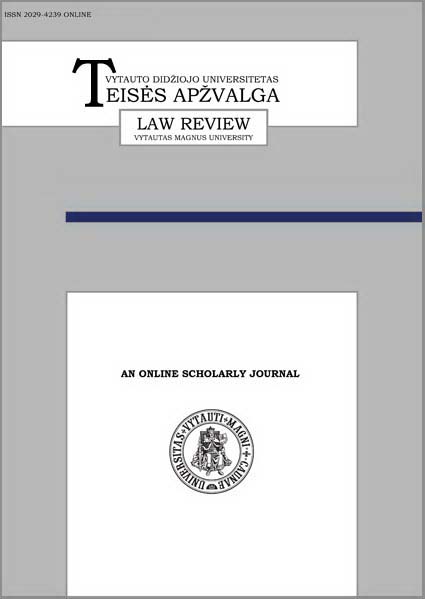The Legal Ground for the Right to Water: Between a Derivative and an Independent Human Right
The Legal Ground for the Right to Water: Between a Derivative and an Independent Human Right
Author(s): Dovilė StankevičiūtėSubject(s): International Law, Human Rights and Humanitarian Law
Published by: Vytauto Didžiojo Universitetas
Keywords: International law; Human rights; Right to water; Derivative rights; Independent rights;
Summary/Abstract: The aim of this article is to discern and compare the different positions on whether the right to water is recognized as a derivative or an independent human right and how each ground affects the nature of State’s obligations. In order to achieve this aim, in the first two parts of this article two main views on the ground of the right to water are presented – firstly, that the right to water is derived from other existing human rights, and secondly, that it is a self-standing right. Examining the State practice and relying upon the previous analysis of judicial decisions, the legal grounds for establishing right to water are compared. The views that human right to water is a self-standing right or established in customary law are analyzed and subsequently rejected, since only opinio juris of States is moving towards greater recognition of this right and the uniform practice, under traditional notion of customary law, is missing. While the position that right to water derives from ICESCR is criticized as potentially creating a new right through creative interpretation of the Covenant by CESCR, majority of States and judicial bodies agree with this derivation of the right to water from the right to adequate standard of living and right to health. In the third part of the article, comparative analysis of judicial decisions from different jurisdictions is performed, which has shown that while the courts do not regard the right to water as a self-standing human right, they adjudicate water related issues as part of other fundamental human rights, such as right to life, dignity, and freedom from torture, right to health. Therefore, even in the absence of an explicit recognition of the right to water, the courts creatively adjudicate this essential element for human survival.
Journal: Teisės apžvalga
- Issue Year: 2019
- Issue No: 2 (20)
- Page Range: 26-43
- Page Count: 18
- Language: English

